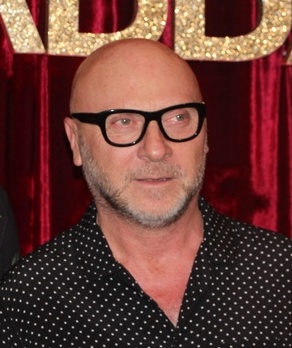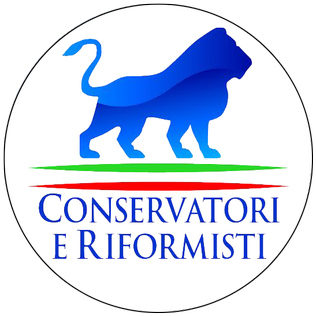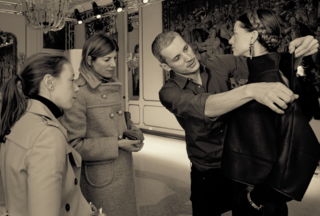History
The firm was established in Alba in 1947 by Giuseppe Miroglio, son of Carlo and Angela Miroglio, both of whom ran a drapery business at the turn of the 19th century. The move from trade to industry dates back to when Giuseppe Miroglio decided to venture into the production of silk fabrics and the installation of looms.
Vestebene (now Miroglio Fashion) was established in 1955. This division is dedicated to mass-production of fashionable women's clothes. In 1958, the Miroglio Group broadened its sphere of activity by opening a modern dyeing, special cloth finishing and textile-printing plant, thereby completing the fabric-to-garment production chain.
Vestebene started moving some of its production away from Italy in the 1970s, initially to Greece and then to other countries, from Tunisia to Egypt, throughout the Mediterranean. At the same time its fabric division diversified into the thread, yarn, and transfer paper industries. Over the course of the next two decades, the group opened new manufacturing operations in Southern Italy, particularly in the Apulia region. [1]
In 1973, the Fondazione Opera Elena Miroglio (now the Fondazione Elena e Gabriella Miroglio) was established. This has a focus on raising awareness of cultural, welfare, and social issues. Emphasis is placed on activities oriented towards Group employees (healthcare and economic support) and towards their children (nurseries, holiday camps, scholarships) and, not least, towards the group's pensioners, providing them with pleasure trips and other recreations. [2]
The Elena Mirò brand was launched in 1985. (From 2005 to 2020, the brand has been targeted at the more generous sizing womenswear sector. [3] ) By the mid-1980s, the Group was forging a strategic alliance with leading stylists such as Moschino and Krizia. Eventually other brands were born, such as Caractère and Diana Gallesi, as well as Motivi in 1993. [4]
Another milestone along the route to internationalisation was the Group's entry into the Bulgarian market, accomplished in 2001 through acquisition of a legendary production site at Sliven. [5]
In October 2002, the president of the Italian Republic conferred on Carlo Miroglio, chairman of the Miroglio Group, the Cavaliere di Gran Croce (Knight Grand Cross), an insignia bestowed on those who, in the course of their life and professional career, have been singularly meritorious with long and conspicuous service in social, commercial and industrial activities. [6]
Gaining shape in 2003 were rumours of imminent withdrawal by Miroglio from its spinning manufacturing facilities in Southern Italy, starting with the production site at Castellaneta earmarked for shut down in the Spring 2004.
In December 2004, Miroglio formed a joint venture with the Chinese company Elegant Prosper which specializes in mid/upper bracket womenswear. [7] By the end of 2006, the Miroglio group managed one thousand stores. [8] In June 2008, the Miroglio group acquired a stake in the Turkish group Ayaydin which specialized in womenswear fashion. [9] The group's production site at Ginosa in Apulia shut down in 2008 and sparked parliamentary questions and debate. [10] [11]
In December 2019, Alberto Racca became the CEO of Miroglio.
In March 2024, Trussardi entered Miroglio Group as an independent brand based in Milan. [12]
Activities
Miroglio Group operates throughout the entire fashion and retail supply chain. It creates and distributes 10 fashion brands, including Trussardi, Elena Mirò, Motivi, Oltre, Fiorella Rubino, Diana Gallesi and Luisa Viola. Three brands are managed through a partnership with the Turkish Ipekyol Group: Ipekyol, Machka and Twist.
Miroglio's company Sublitex is world leader in water-free transfer printing on paper and technical film for the textile, fashion and architectural markets.
Heidemarie Jiline "Jil" Sander is a German minimalist fashion designer and the founder of the Jil Sander fashion house.
Ermenegildo Zegna N.V., also known as Zegna or the Ermenegildo Zegna Group, is an Italian luxury fashion house. It was founded in 1910 by Ermenegildo Zegna in Trivero, Biella, in the Piedmont region of northern Italy. As of 2021, it is a public company that is listed on the New York Stock Exchange.

Brioni is an Italian menswear luxury fashion house based in Rome and specialised in sartorial ready-to-wear, leather goods, shoes, eyewear and fragrance, and provides a tailor-made service (Bespoke).
Kiton is an Italian fashion house founded by Ciro Paone in Arzano, NA 1968.
Loro Piana is an Italian company specialising in clothing and textile products, claiming to be the world's largest cashmere manufacturer. It was founded in 1924 and is owned by French multinational holding and conglomerate LVMH.

Nicola Trussardi was an Italian fashion designer and entrepreneur. He took over the Trussardi fashion line in 1970 and built the small glove-maker into an international brand. He also led the restoration of the Marino alla Scala in Milan. The Nicola Trussardi Foundation was named in his honor.
Trussardi is an Italian fashion house based in Milan, Italy, and specialized in leather goods, ready-to-wear, perfumes, and accessories.

Ignazio Benito Maria La Russa is an Italian politician who is serving as president of the Senate of the Republic since 13 October 2022. He is the first politician with a neo-fascist background to hold the position of President of the Senate, the second highest-ranking office of the Italian Republic.

Giulio Terzi di Sant'Agata is an Italian diplomat and politician. He was Italy's Minister of Foreign Affairs in Mario Monti's government from November 2011 until March 2013, Permanent Representative of Italy to the United Nations in New York between 2008 and 2009 and Ambassador of Italy to the United States between 2009 and 2011. He is currently a Senator of the Republic of Italy and the President of the 4th Permanent Senate Commission of EU Affairs elected from the Lombardy constituency as a part of Brothers of Italy. He is also the President of the India-Italy Parliamentary Friendship group.
Italy is one of the leading countries in fashion design, alongside France and the United Kingdom. Fashion has always been an important part of the country's cultural life and society, and Italians are well known for their attention to dress; la bella figura, or good appearance, retains its traditional importance.

Crédit Agricole Italia S.p.A., formerly Crédit Agricole Cariparma S.p.A., is an Italian banking group, a subsidiary of French banking group Crédit Agricole. Crédit Agricole Italia was ranked as the 11th largest bank in Italy by total assets at 31 December 2015. The group serving Emilia-Romagna, Liguria and Friuli-Venezia Giulia, where the predecessors originated, as well as Campania, Lazio, Lombardy, Piedmont, Tuscany, Umbria and Veneto, or half of Italian regions.

Domenico Mario Assunto Dolce is an Italian fashion designer and entrepreneur. Along with Stefano Gabbana, he is one half of the luxury fashion house Dolce & Gabbana (D&G). Since founding D&G in 1985, Dolce has become one of the world's most influential fashion designers and an industry icon.

Only The Brave, S.p.A., commonly known as OTB Group, is an Italian holding multinational corporation specializing in luxury goods, headquartered in Breganze. The company was founded in 2002 by Renzo Rosso as a holding company for Diesel and future acquisitions of fashion houses. OTB Group is the parent company of a number of brands, including Diesel, Maison Margiela, Marni, Jil Sander, and Viktor & Rolf.

Us with Salvini was a populist political party in Italy. The party, founded by Matteo Salvini on 19 December 2014, was the sister party of Lega Nord (LN) for southern Italy, Lazio, and Sardinia.

The Conservatives and Reformists was a broadly conservative and, to some extent, Christian-democratic and liberal political party in Italy, led by Raffaele Fitto.

Article One, officially Article 1 – Democratic and Progressive Movement, was a social-democratic political party in Italy.

Cassa di Risparmio della Marca Trivigiana, also known as Cassamarca in short, was an Italian savings bank headquartered in Treviso, Veneto. The history of the bank goes back to 1496 when the charitable institution Monte di Pietà di Treviso was founded. The savings bank was established by the Monte in 1907, following a first bank spinoff in 1822 that ended up being absorbed in 1872 by the Cassa di Risparmio delle Provincie Lombarde.

Max Kibardin is an artist, fashion designer and creative director based in Lugano, Switzerland.

Cambiamo! was a centre-right political party in Italy, led by Giovanni Toti.

Italia Viva is a liberal political party in Italy founded in September 2019. The party is led by Matteo Renzi, a former Prime Minister of Italy and former secretary of the Democratic Party (PD). As of 2021, Italia Viva is a member of the European Democratic Party.














